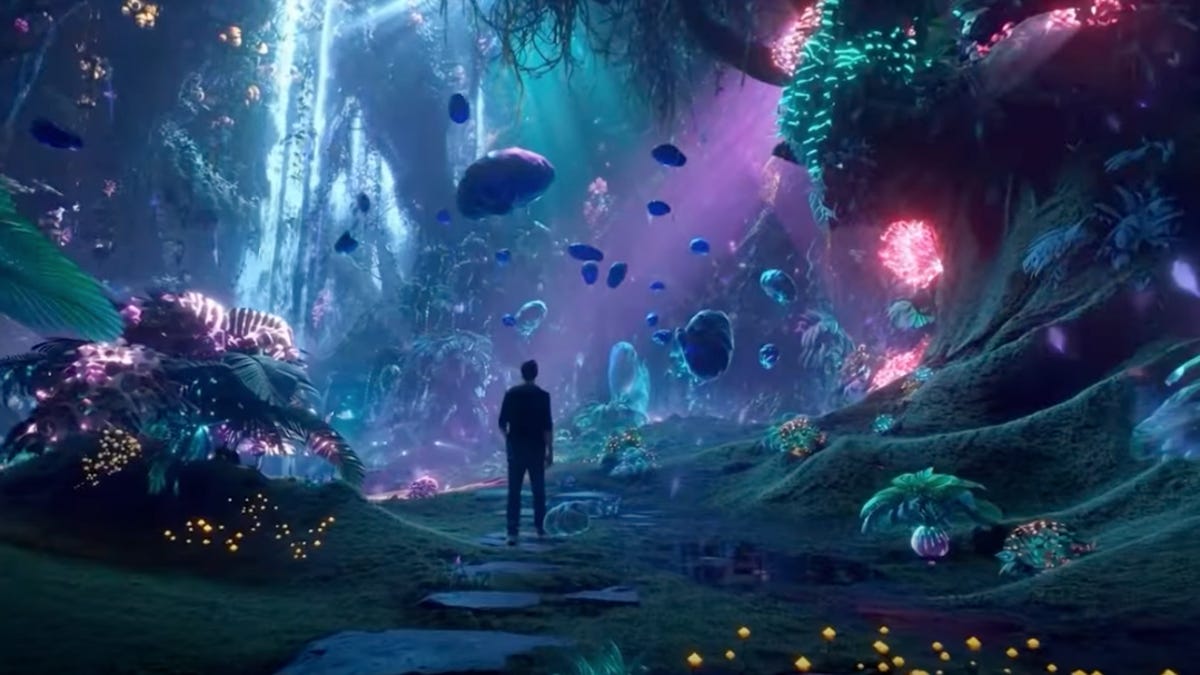OpenAI wants our social media feeds to feature even more AI. Its AI video generator Sora is getting its own social media app, powered by a newly updated version of its AI video model called Sora 2, the company announced Tuesday via livestream.
The app will be a kind of social media platform, where you can follow your friends and share content. However, all of that content will be generated by AI. “It’s not posted by bots, it’s posted by humans, but it’s all AI-generated,” OpenAI’s Thomas Dimson said during the livestream. We’ll have to wait and see if the app does that or if it becomes another social media platform inundated with AI slop.
One of the biggest new features is Cameo, which lets you use your face or someone else’s face and insert it into an AI-generated scene. You can use other people’s likenesses to create videos if they’ve elected to have their cameos made public. You can also create videos with sound, a first for OpenAI and a feature that puts it on par with Google’s Veo 3, which stunned AI enthusiasts this summer. OpenAI said in a blog post that it’s also better at obeying the laws of physics, something AI video generators struggle with, thanks to better reasoning capabilities.
The app is currently only available to iPhone users. Android users will be able to use the new Sora through the web browser, but like iOS users, they’ll need an invite code.
You will be able to use the new Sora 2 model through the web browser, too.
Sora 2 invite codes: How they work
You can download the Sora app now from the Apple App Store. Look for the app that’s made by OpenAI and features a blue and white cloud icon. Though you can download it now, you won’t be able to use it right away.
Sora is an invite-only app, so you’ll need a friend to give you an access code. Each Sora user will be given four invite codes. The app is best enjoyed with friends, OpenAI said during the livestream, which likely explains the more restricted access. An OpenAI spokesperson said the “rollout is starting now” for the initial batch of access codes and that the company will roll it out quickly.
For now, I recommend downloading the app and signing in with your ChatGPT account (or creating a new account, if you don’t have one). Once you’re logged in, you can request to be notified when access codes become available.
Sora 2 content moderation and safety
A truly usable and enjoyable social media platform relies heavily on the app’s content moderation and safety policies. This is a thorny, complex area, and it’s not something OpenAI has had to deal with before for a true social media app.
The company is starting off with intentionally being “a little conservative with moderation,” per the livestream, which makes sense, as it did the same when it launched its image and video generation models. It also has guardrails in place to prevent people from creating X-rated and graphic content, according to the livestream. We’ll have to see how effective those blockers are once the invite codes start rolling out. AI videos downloaded from Sora will be watermarked, so they should be recognizable as AI when shared on other sites.
AI in social media
This isn’t the first time the idea for an OpenAI-branded social media app has been floated. The Verge reported this spring that CEO Sam Altman was exploring the idea of a social media app, with a more recent report from Wired this week giving us some early insight into what that app, which we now know as the Sora app, might be like.
AI has become a big part of social media. Meta, which owns Facebook and Instagram, has flooded its apps with Meta AI, introducing it in search and with AI personas you can chat with via DM. Meta also rebranded its smart glasses app Meta View into the Meta AI app in April, featuring a similar feed of AI-generated content. AI media generation tools like image and video generators have led to an increase in low-quality, useless content referred to as AI slop. Despite OpenAI’s goal to have the Sora app focus on human connection, it seems likely that the feeds will feature a lot of this AI slop.
OpenAI dropped the first version of Sora in 2024, but it hasn’t had any big updates since then. In the meantime, the company has added image generation to its ChatGPT chatbot, which initially took off and started a trend of people using the model to create images of themselves in the iconic cartoon-like style of Studio Ghibli. The trend also amplified the ethical and legal concerns that come with AI media generation.
Read the full article here


